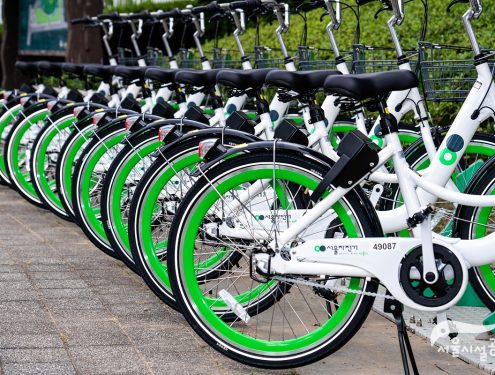(YANG)
Q1. South Korea logged the largest current account surplus in seven years in June, driven by robust semiconductor exports. Could you first break down chip exports for the month of June, and also give us your overall assessment of semiconductor recovery in the first half of this year?
(KIM)
Q2. But despite record profit, shares of Samsung Electronics and SK Hynix tumbled last week amid growing fears of an ‘AI bubble.’ Investor concerns intensified that AI might not be the technological marvel it’s cracked up to be, with Goldman Sachs issuing a warning last month. Professor Kim, what renewed fears over an AI bubble burst, and what impact would it have on Korean companies going forward?
(YANG)
Q3. Samsung Electronics has announced it will begin mass-producing fifth-generation 8-layer HBM3E products, the crown jewel of AI performance, in the third quarter. And there was a loud noise over whether the company had passed Nvidia’s certification. How do you view the impact of frequent rumors on Samsung, and what are your expectations for the company’s HBM3E production?
(KIM)
Q4. SK Hynix is set to receive up to $450 million in grants from the U.S. government, which is aimed at funding the company’s advanced packaging plant and R&D facility for AI products in Indiana. How do you evaluate the subsidy in relation to SK’s investment, and how much do you think it will enhance SK’s global competitiveness?
(YANG)
Q5. Fierce competition is expected between SK Hynix and Samsung Electronics over next-generation AI chips. While SK is currently showing a slight lead, how do you expect things to play out from here, and what will be the key to winning the tight race?
(KIM)
Q6. The U.S., meanwhile, is reportedly mulling new restrictions on China’s access to AI memory chips and other related equipment, an announcement of which is expected at the end of this month. What does this mean for South Korea’s memory chipmakers?
(YANG)
Q7. The U.S. Presidential election is another big variable that could have a huge impact on South Korean firms. While we’re yet to learn more about Democratic nominee Harris’s trade policies, how would Trump’s presidency under the overarching goal of MAGA affect Korea’s semiconductor industry?
(BOTH)
Q8. Many economists say South Korea, despite being a global leader in memory chips, lags behind when it comes to advanced next-generation AI technology. What efforts must be made to stay ahead of the game in the global AI chip rush?
source : https://www.arirang.com/news/view?id=274639




